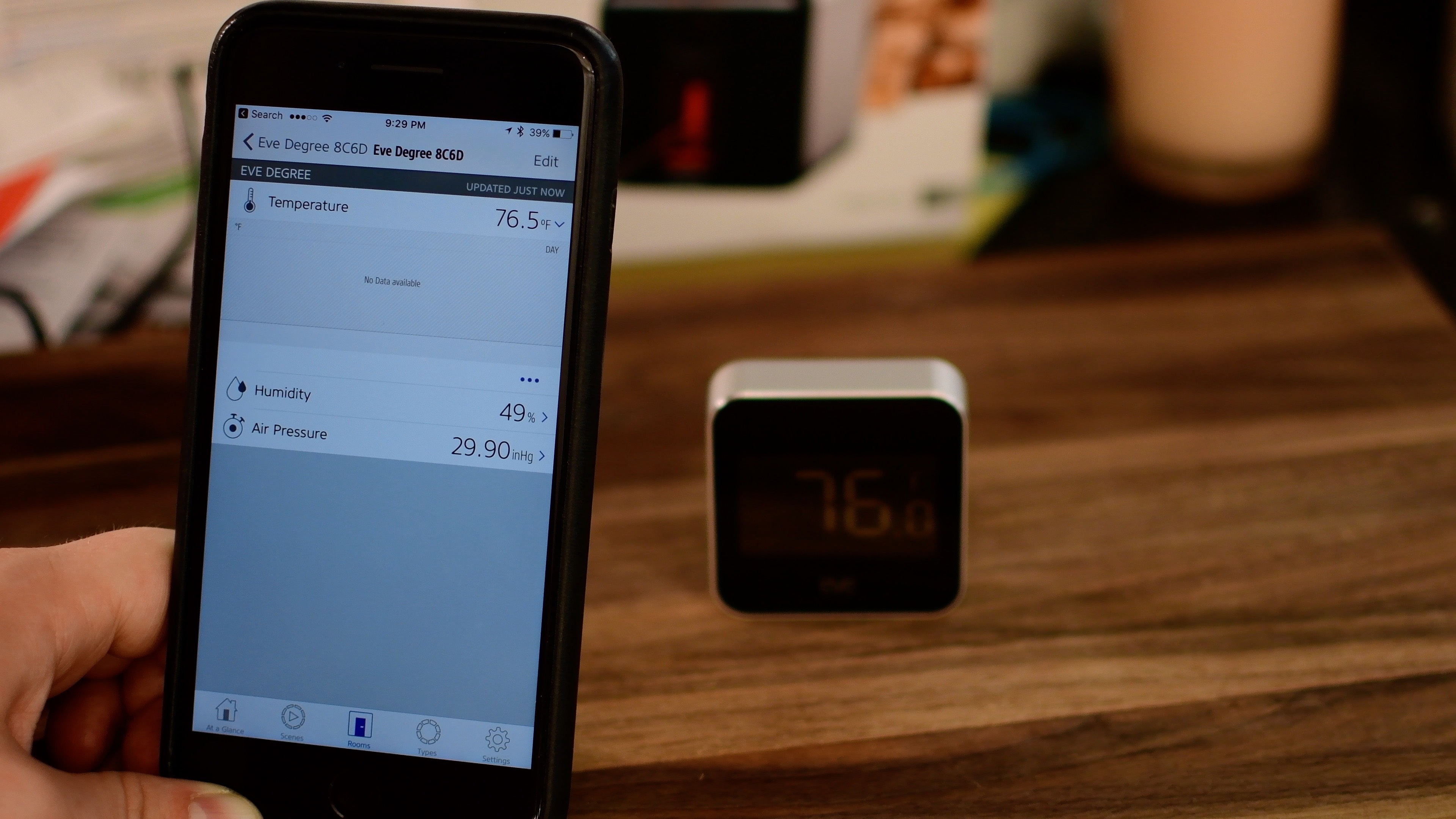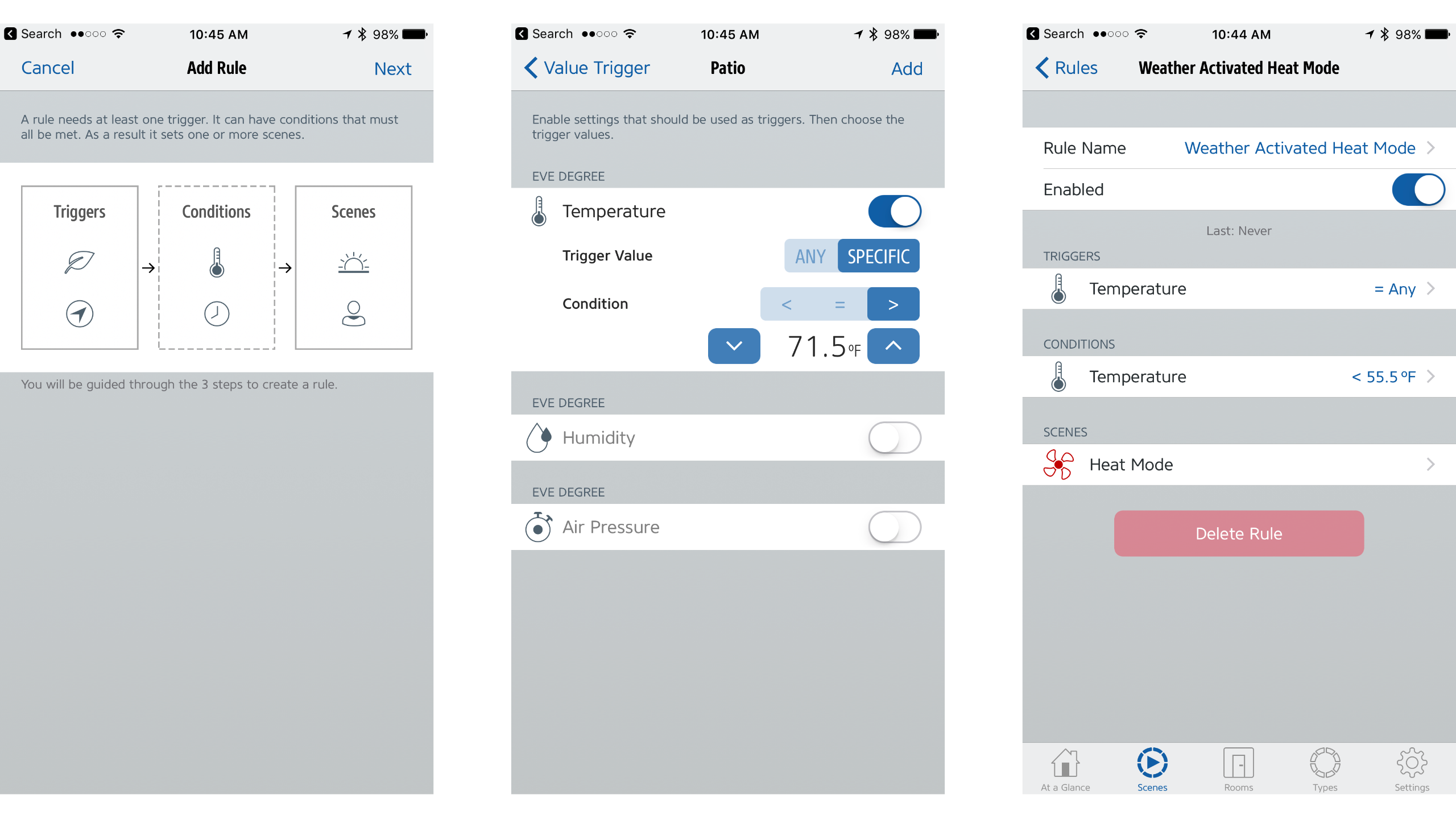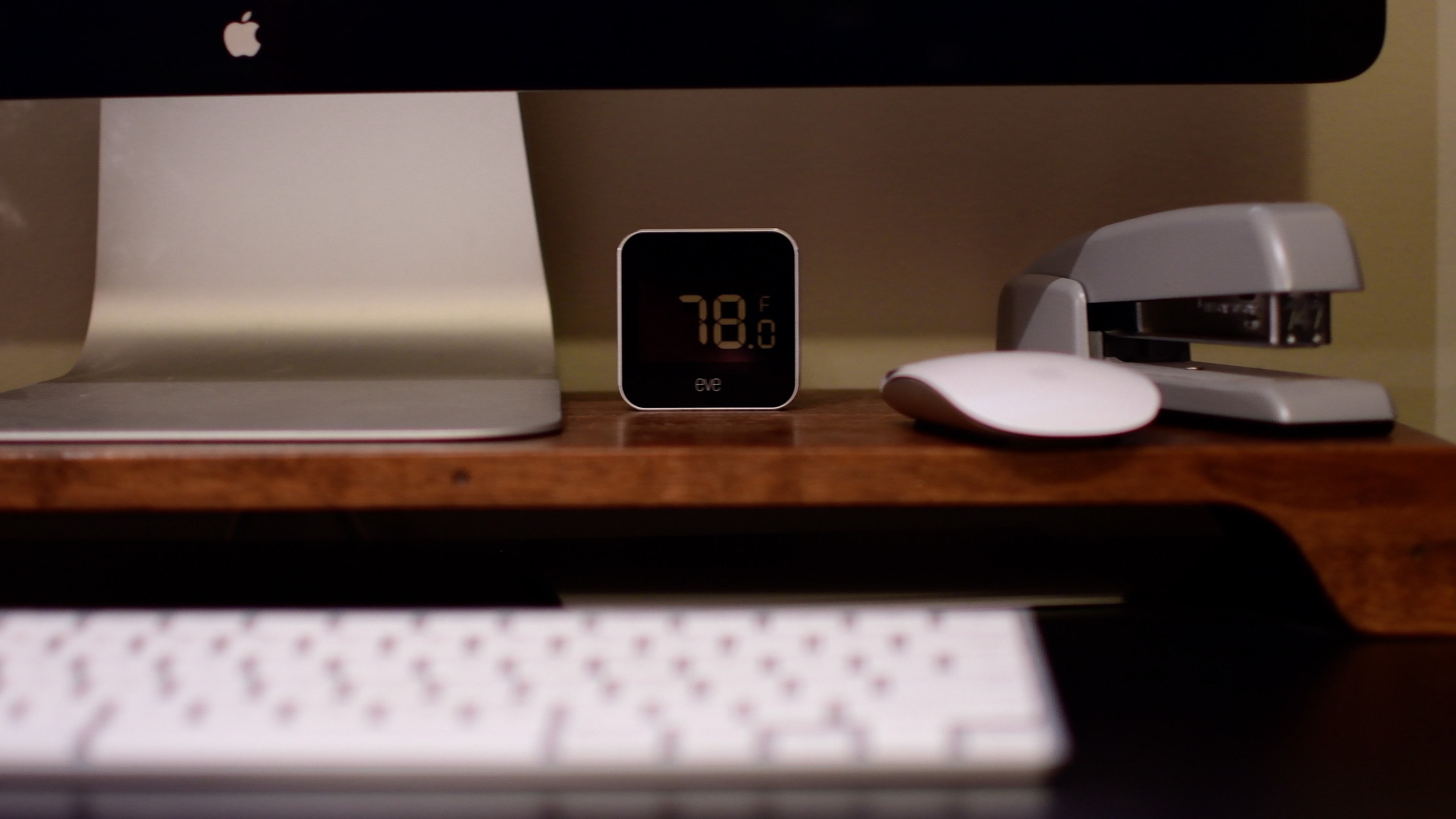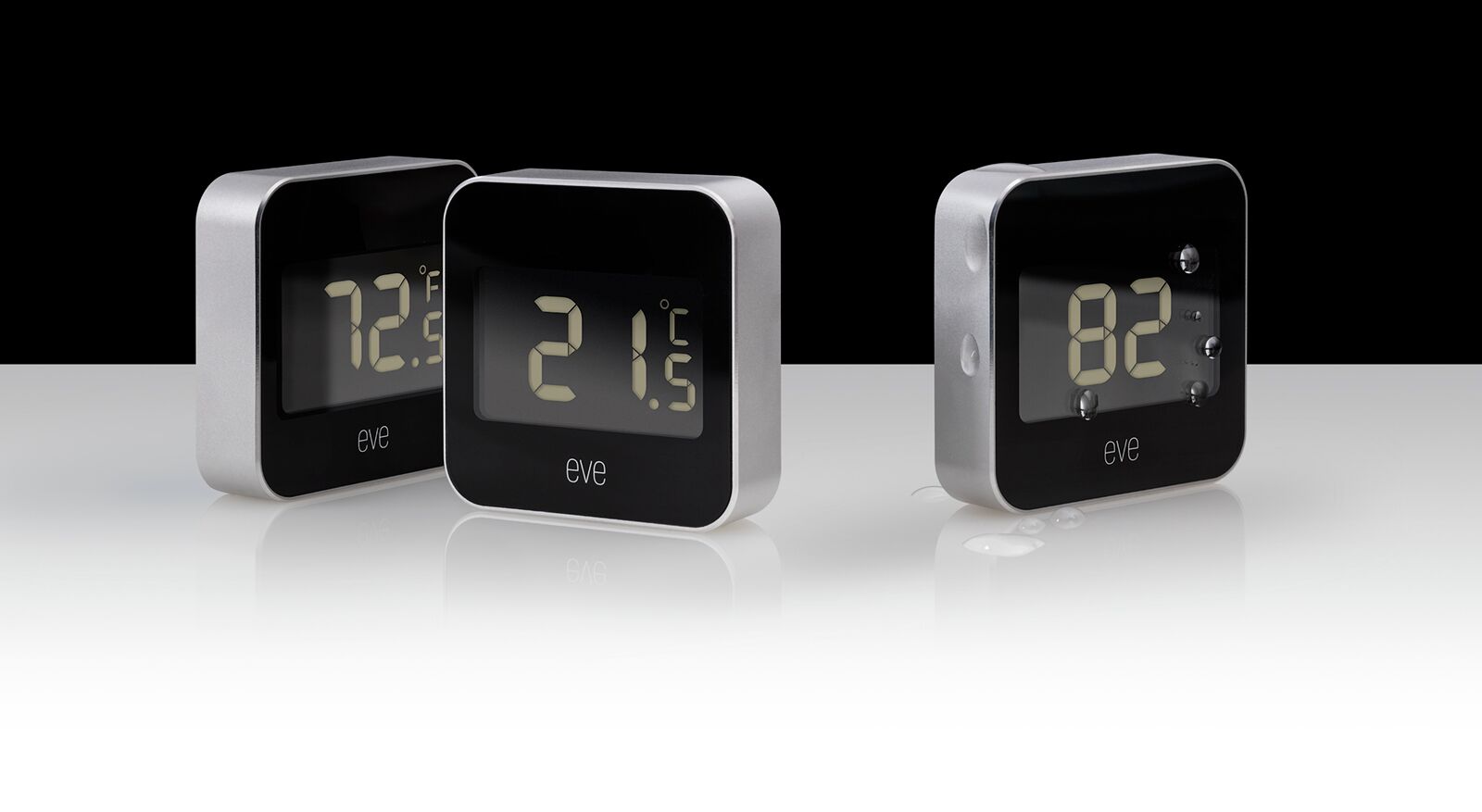Elgato has released the newest edition to their already impressive HomeKit lineup of Eve products, Eve Degree. The Eve Degree is a HomeKit temperature and humidity sensor that connects over Bluetooth Low Energy. It has a new aluminum enclosure, a much better look than the similar Eve Room and Eve Weather, with a large readable screen on the front for glanceable information.
What is it?

The Eve Degree is a small 2.1″ x 2.1″ thermometer and hygrometer. It has an aluminum exterior with an LCD display on the front. On the back it has a button that is used to reset the device, as well as cycle through the 3 different measurements you can display on the screen (temperature (C), temperature (F), and humidity). It can be mounted on the wall using the hanging socket on the back. It connects to various devices using Bluetooth Low Energy and runs off a small CR2450 cell battery that will garner roughly a year in battery life.
What does it do?
Well, as is passive sensor for HomeKit, it doesn’t actively do anything. An active device would do things like say, turn off a light or turn on a humidifier. Instead it passively will collect information, then share that information in a variety of ways. It is useful to improve the comfort of your home, or maintaining precise control over sensitive environments, like a wine cellar or greenhouse.
While it does measure humidity, temperature, and air pressure, air pressure is not supported by HomeKit yet, so if you want to set up rules based on that, you have to use the Elgato Eve app. When you think about it, Eve Degree really isn’t useful at all if it isn’t accurate, and luckily, there are no concerns here. All 3 readings have very tight ranges. For instance, the temperature is accurate to within .54º F. For something that needs very close control on temperature, that will do just fine.
Using it in combination with HomeKit, allows you to set up automation, as well as getting the information through Siri. The automation is what makes these sensors really powerful because you can use it to turn devices on and off, without your intervention.
Setup

Setting up the Eve Degree is as easy as every other HomeKit-enabled device. Using the Eve or any other HomeKit application, you search for new accessories around you, tap the device, and scan the secure HomeKit pairing code on the bottom of the device. This will tie the sensor to your home.
While it is nice that Apple released a first party HomeKit app, anyone who messes with HomeKit a bit will soon realize that it has much to be desired. For instance, the Home app doesn’t support air pressure, or rules based on the temperature or humidity. You will have to go to one of the great third-party apps for that. I actually really love the Eve app, so that is where I tested this.
You can give separate names to the humidity or temperature sensors separately, or you can name them both the same. You also can choose where you are placing the device. For instance, I have my home split into rooms, then an upstairs and downstairs zones, then an outside zone. So if you placed this on the patio, you could ask Siri what the weather is outside, or on the patio.
Automation

Using the Eve Degree for automation is great, but it does require other HomeKit devices to work. A couple easy automation ideas right off the bat would be turning on a fan when the temperature in the bedroom gets too hot at night, or activating a humidifier (or dehumidifier) based on your levels of moisture in the air. Those both are great for comfort, as well as for something like a greenhouse/wine cellar that need to be dead on with those levels.
There are a few caveats though, that aren’t really Elgato’s fault, but instead show the greenness of Apple’s HomeKit ecosystem. The lack of certain measurements for HomeKit, or the inability to set rules based on these triggers in Apple’s first party app are clear signs of work needing to be done.
Connecting remotely, or running these automation tasks also requires a hub of some sort. Since the Eve Degree connects over BLE and not Wi-Fi, when you aren’t in the home, something still needs to connect to the sensor. If you leave an iPad (running iOS 10), or a 4th generation Apple TV in your home, you’re all set. They will connect for you and run your automation, when you (or more importantly, your phone) aren’t around.
Of course, if you have your Eve Degree in some far corner of your home, you may still have issues connecting. That is going to be a big downside of connecting over Bluetooth instead of wifi, but you have such great battery and power benefits because of it. Elgato has come up with their own solution, the still unreleased bluetooth bridge that was unveiled at CES.
Final thoughts

I love the addition of a screen to the Eve Degree. I found it most useful sitting outdoors on my porch where I can easily see in from the inside. I also set up automation rule to switch the mode of my Ecobee4 HomeKit thermostat based on the temperature outdoors. Passive sensors aren’t the most exciting thing, but motion sensors, temperature sensors, air quality sensors, that are all going to make your home actually appear to be smart.
There is a little bit of redundancy in the Eve Lineup now as the Eve Degree seems like a much better alternative to the Eve Room or Eve Weather, but the Degree loses key measurements like air quality. If you are looking for a new HomeKit sensor, and don’t care about air quality, you can’t do much better than the Eve Degree. But if you are looking for that metric, you’ll have to look elsewhere.
The Eve Degree will be available from Elgato.com and Amazon starting June 6th for $69.95. Let us know what you think of the looks (and smarts) of the Eve Degree down below in the comments.
